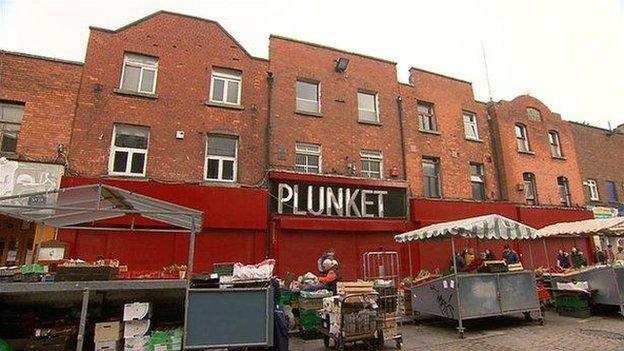Spitfire Paddy: the Irish ace who gave his all in Battle of Britain
- Published
Dubliner Brendan Finucane was known as Spitfire Paddy, as BBC News NI's Mervyn Jess reports
This week 75 years ago, the future of Europe hung by a thread over the skies of southern England as the Battle of Britain came to a climax.
Pilots from the UK, the Commonwealth, the US and countries invaded by Germany were involved. They were joined by a handful of volunteers from Ireland.
Among them was Brendan Finucane from Dublin, also known as Spitfire Paddy.
By the time of his death, he had become a hero across Britain and in Irish America.
What makes the story of Wing Commander Paddy Finucane all the more unusual is that his father had fought alongside future Irish President Eamon De Valera in the 1916 Easter Rising when republicans rose against British rule in Ireland.
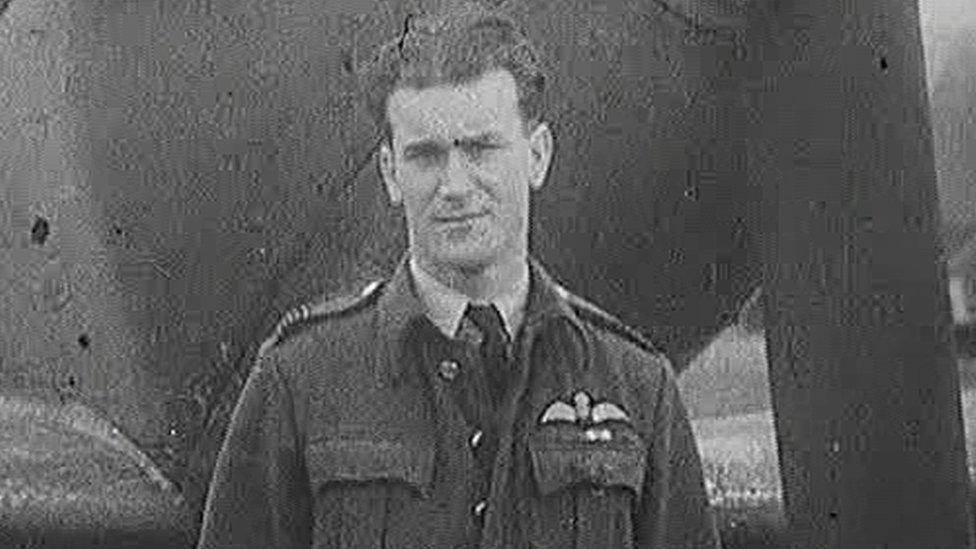
Spitfire Paddy became a hero across Britain and in Irish America
Thomas Andrew Finucane was one of those who held out against British soldiers in Dublin's Boland's Mill in fighting that eventually led to Ireland's independence.
His son got his taste for flying on pleasure flights at Baldonnel airfield near Dublin.
Air-raid
In 1938, he volunteered to join the Royal Air Force (RAF) at a time when the threat from Germany was becoming all too clear.
By the time the Battle of Britain began in 1940, he was in action and flying Spitfires.
On 1 August, in a battle with 12 Messerschmitts, he shot one down.
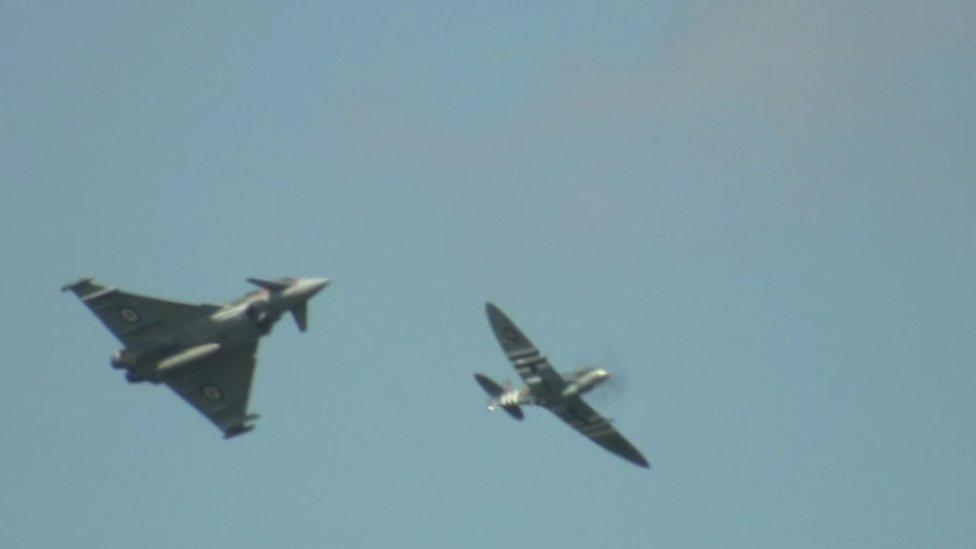
The Spitfire and the modern Typhoon take to the skies together
As he landed to refuel at RAF Manston, he found himself in the middle of an air-raid, and after a quick turnaround he was back in the battle damaging and destroying two more German fighters.
The following day, he was back in the air again in his Spitfire, recognisable because of the shamrock painted under the cockpit.
Brendan Finucane, also known as "Spitfire Paddy" recalls the moment he was nearly shot down and his aircraft covered in bullets
Again, he shot down one and possibly two enemy fighters within sight of Dover.
Over the next two years, he was rapidly promoted.
Fame
He was just 21 years old when he was made a wing commander.
To this day, he is the youngest ever to hold that rank.
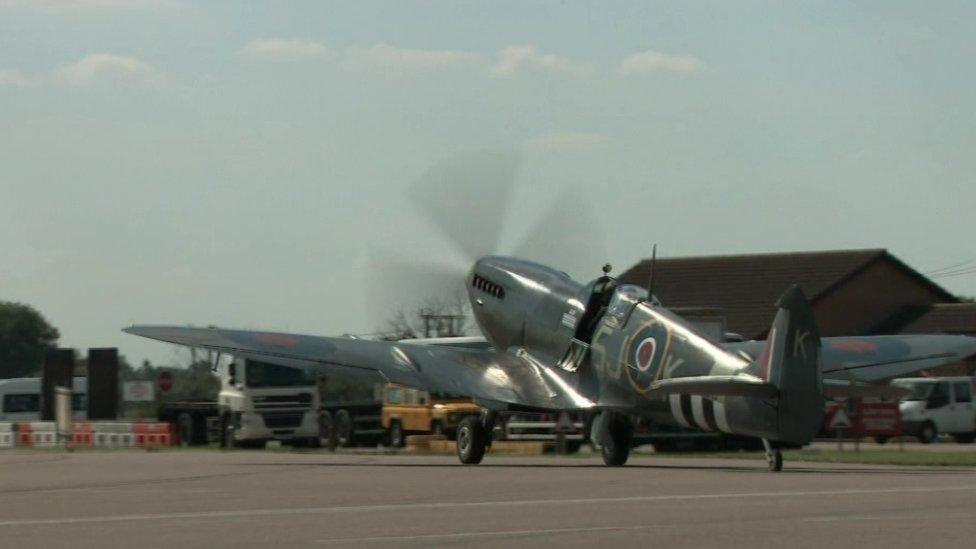
To mark the anniversary of the Battle of Britain, the RAF has arranged a special display
His position as someone who could be used for publicity purposes was underlined when he shot down the best-known German fighter pilot of the time, Adolph Galland.
His fame spread across the Atlantic and he took part in several radio interviews for the BBC.
In one, Finucane said he was proud of his Irish blood and concerned to see it pouring out of him after he was "shot up".
"The cockpit was awash with blood. It was not until I was feeling a bit sick and dizzy did it dawn on me that it was my blood!" he said.
"It was good Dublin blood which, I thought, should not be wasted.
Stance
"How I even managed to land without a crack-up will never be known. The luck of the Irish triumphed that day."
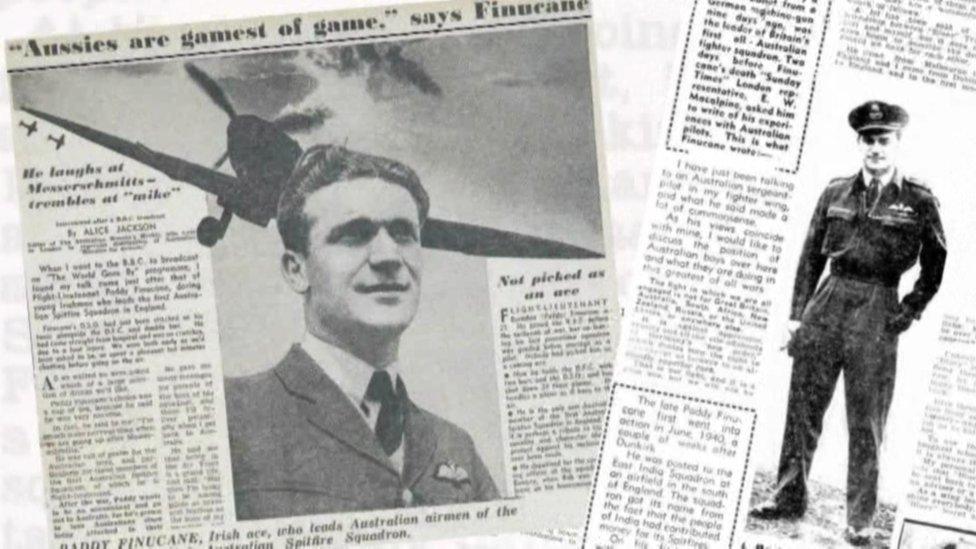
Spitfire Paddy's fame as a fearsome pilot spread across the Atlantic
The New York Journal hailed Finucane as a "fighting Gael" and the Chicago Herald carried a front-page picture of him under the headline: "Flying Shamrock terror of the Nazis."
But in Ireland it is only in recent years that Paddy Finucane's story has become better known.
This is perhaps due to the Republic of Ireland's neutral stance during that war.
His nephew, Brendan Finucane QC, said there was no doubt his uncle chose to fly for the RAF as he knew the Germans had to be stopped.
"My uncle was probably the most pre-eminent of that generation of Irishmen who volunteered to come and fight (with Britain) in the Second World War," he said.
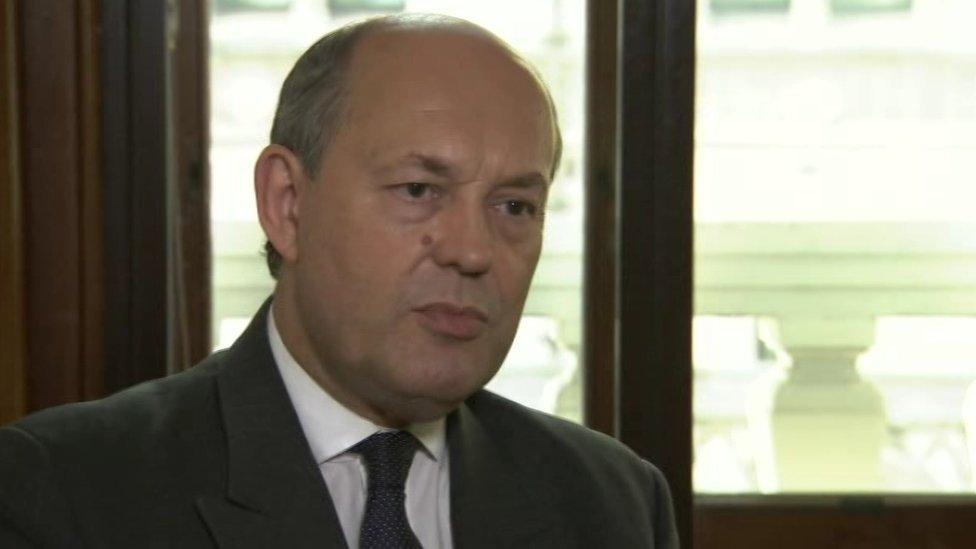
Brendan Finucane QC, Spitfire Paddy's nephew, said his uncle was always a true Irishman
"His story was not told in Ireland because of censorship there during the war and because it was ignored in the years following."
Gallantry
Mr Finucane, a judge in London, said his uncle was "an RAF pilot and always an Irishman".
His view was that if the Nazis invaded England, then they would invade Ireland.
"My uncle was a combination of being a true Irishman, but also realising he was fighting for the Royal Air Force and for Britain.
"As he was awarded some of the highest honours for gallantry by the king, he clearly also knew he was fighting for the Crown itself," he said.
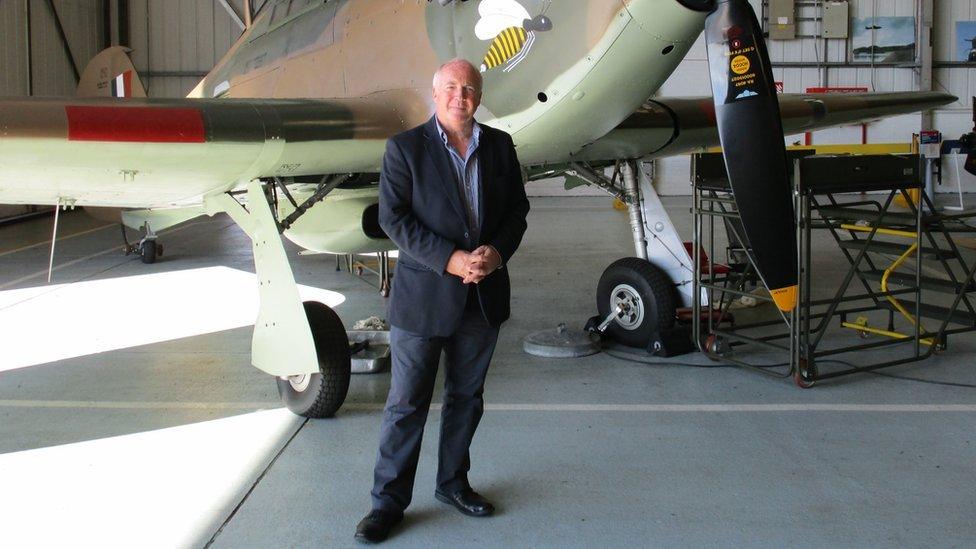
Mervyn Jess reports on Spitfire Paddy for BBC Newsline
The RAF's Battle of Britain Flight keeps the memory of men like Paddy Finucane alive.
Modern Spitfire pilot Flt Lt Anthony Parkinson said: "I've read about him.
"He was a good-looking guy, a natural fighter pilot and a leader.
"You have a guy who fought in the Battle of Britain and who, by the time he was killed, had 26 kills to his name.
"This was truly amazing and, without doubt, Paddy Finucane was an absolute hero."
Mervyn Jess tells the story of Spitfire Paddy on BBC Newsline at 18:30 BST on Tuesday 15 September.
- Published18 August 2015
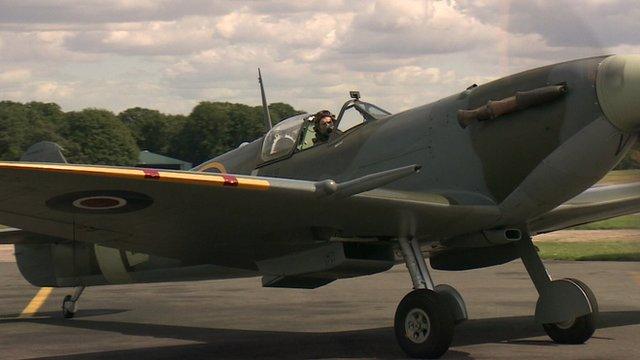
- Published13 September 2015
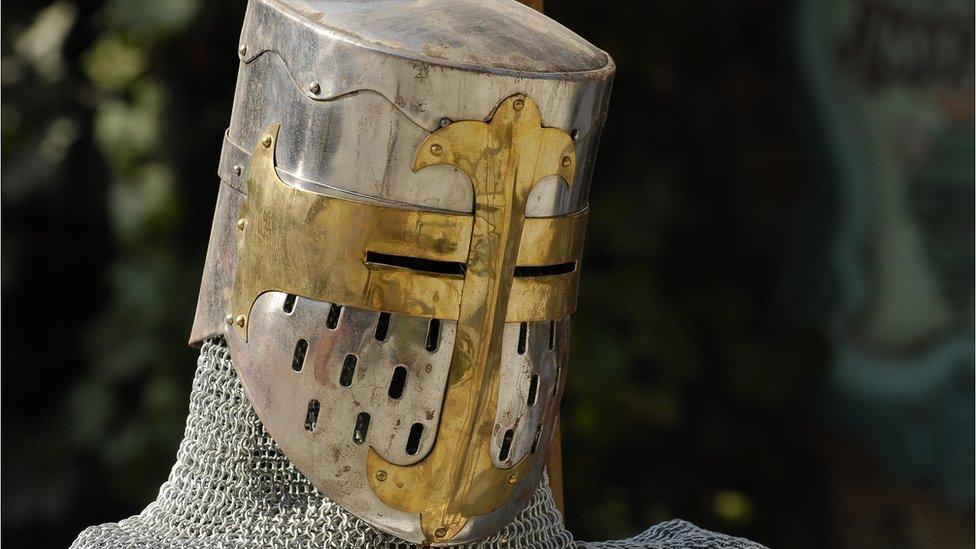
- Published10 July 2015
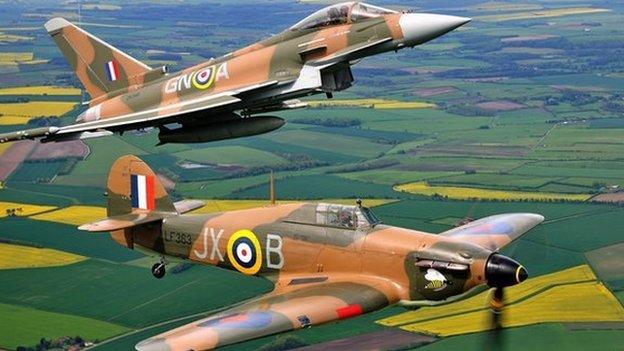
- Published31 March 2015
